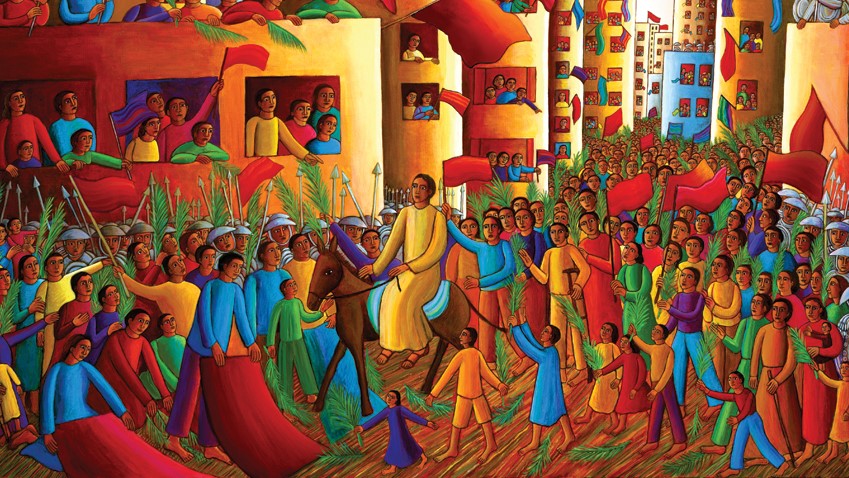
Mark 11:1-11
Palm Sunday B18
1 When they were approachingA Jerusalem,B at BethphageC and Bethany,D near the Mount of Olives, he sentE two of his disciplesF
2 and said to them, “GoG into the villageH ahead of you, and immediatelyI as you enter it,
you will findJ tiedK there a coltL that has never been ridden;M untieN it and bringO it.
3 If anyone says to you, ‘Why are you doingP this?’ just say this, ‘The LordQ needsR it and will send it back here immediately.’”
4 They went away and found a colt tied near a door,S outside in the street.T As they were untying it, 5 some of the bystandersU said to them, “What are you doing, untying the colt?”
6 They told them what JesusV had said; and they allowedW them to take it. 7 Then they brought the colt to Jesus and threw their cloaksX onY it; and he satZ on it.
8 Many people spreadAA their cloaks on the road,BB and othersCC spread leafy branchesDD that they had cutEE in the fields.FF
9 Then those who went aheadGG and those who followedHH were shouting,II
“Hosanna!JJ
Blessed isKK the one who comes in the nameLL of the Lord!
10 Blessed is the coming kingdomMM of our ancestorNN David!OO
Hosanna in the highest heaven!”
11 Then he entered Jerusalem and went into the temple;PP and when he had looked aroundQQ at everything, as itRR was already late, he went out to Bethany with the twelve.
Image credit: “Entry into the City” by John August Swanson, 1990.
